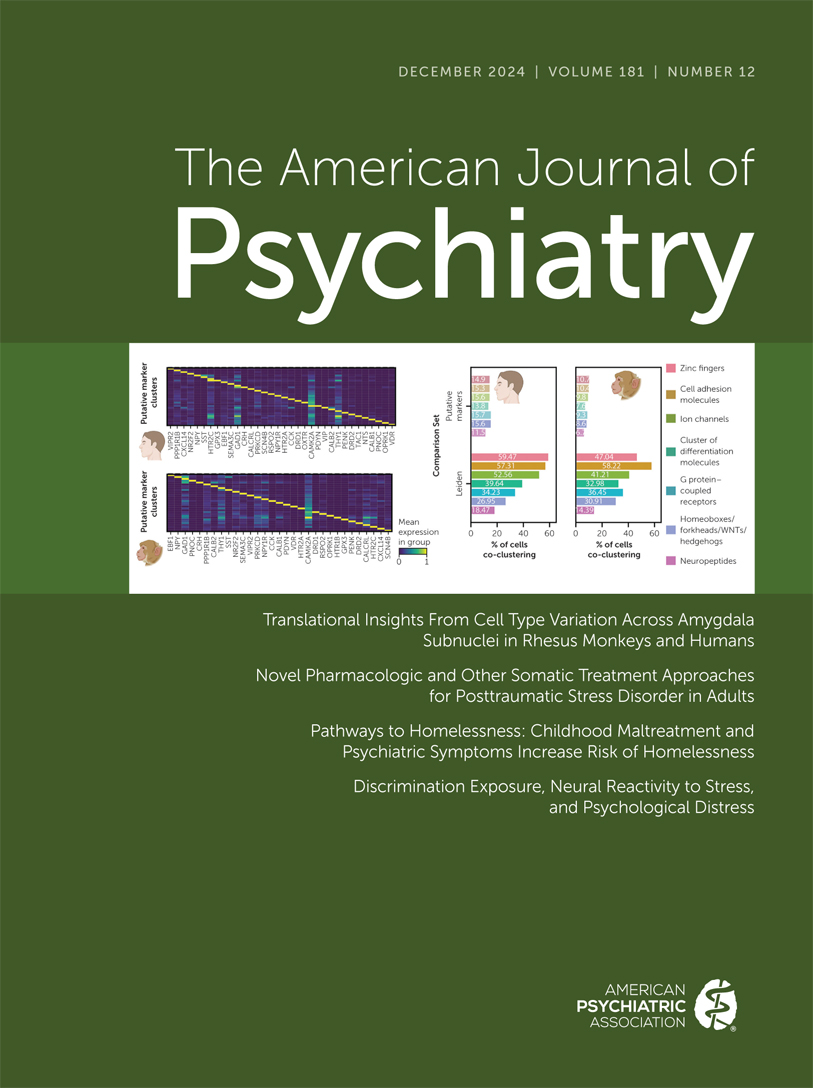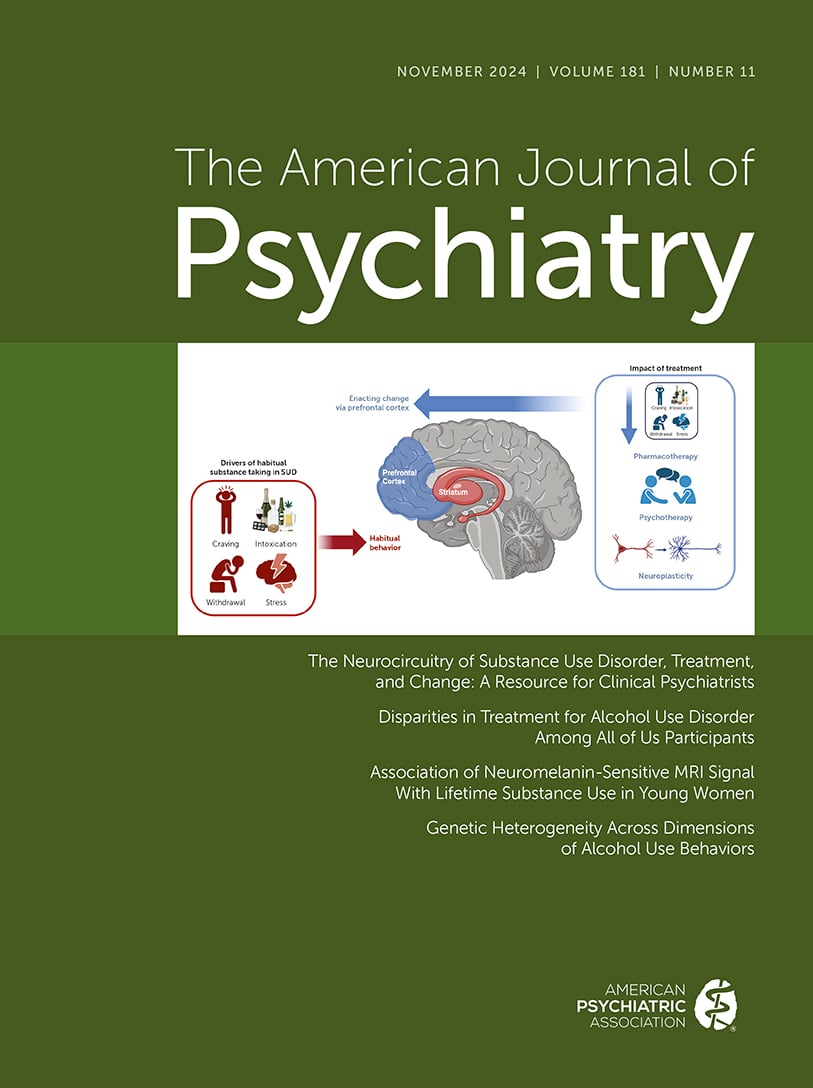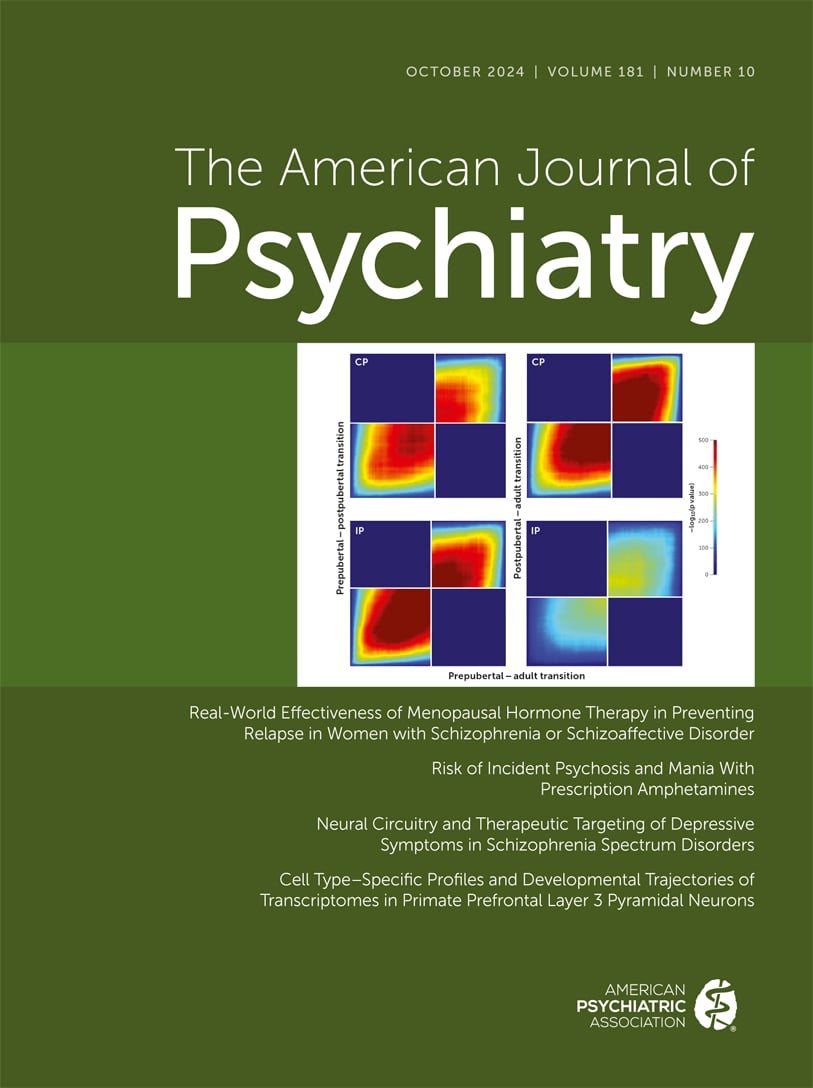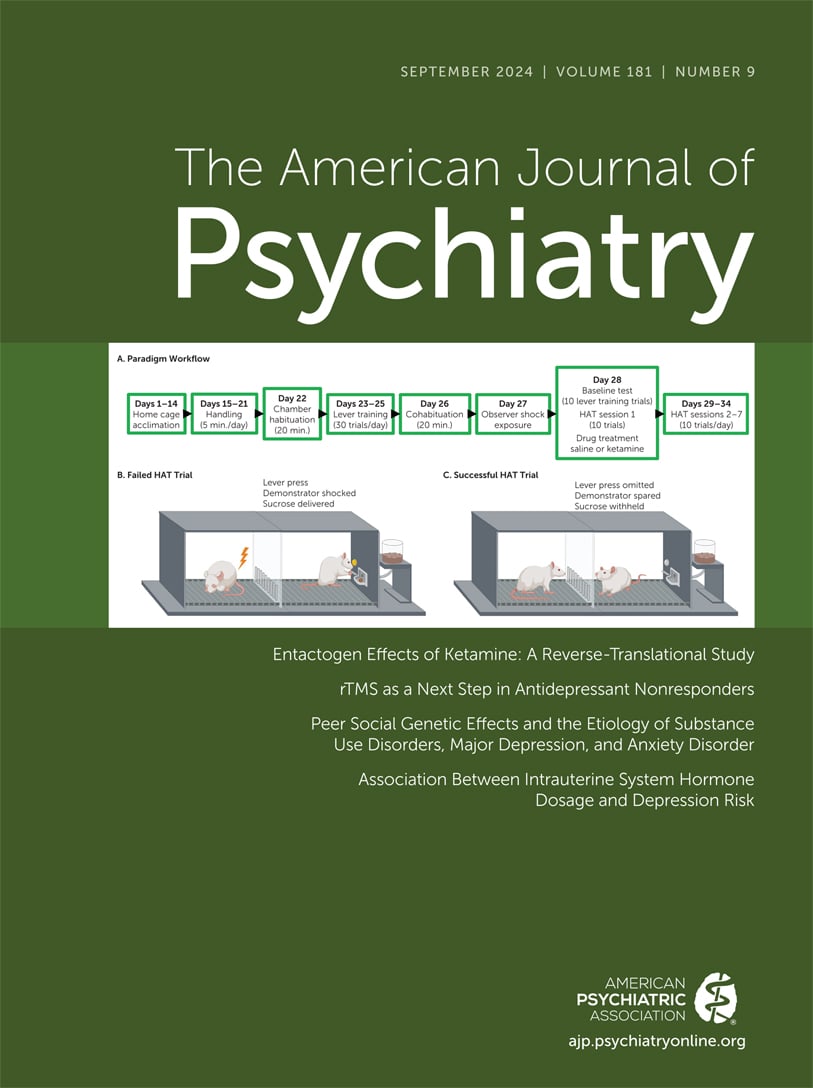American Journal of Psychiatry
- Volume 167
- Number 5
- May 2010
In This Issue
Editorial
Commentary
Introspections
Clinical Case Conference
Publication date: 01 May 2010
Pages502–507Abstract Individuals suffering from systemic lupus erythematosus (SLE) can develop a number of psychiatric conditions, including psychosis. It is often unclear in SLE patients with psychiatric illness whether their illness is primary, due to SLE brain ...
https://doi.org/10.1176/appi.ajp.2009.09040487Images in Psychiatry
Review and Overview
Publication date: 01 May 2010
Pages509–527Abstract Evidence of marked variability in response among people exposed to the same environmental risk implies that individual differences in genetic susceptibility might be at work. The study of such Gene-by-Environment (GxE) interactions has gained ...
https://doi.org/10.1176/appi.ajp.2010.09101452Article
Publication date: 01 May 2010
Pages528–535Objective The authors sought to determine whether personality disorders diagnosed during a depressive episode have long-term outcomes more typical of those of other patients with personality disorders or those of patients with noncomorbid major depression. ...
https://doi.org/10.1176/appi.ajp.2009.09071023Publication date: 01 May 2010
Pages536–544Objective Dysfunctional negative thoughts about the self have long been hypothesized to reflect mood-independent cognitive vulnerability for major depressive disorder. These thoughts are believed to be predominantly automatic, in that they are involuntary ...
https://doi.org/10.1176/appi.ajp.2009.06091444Publication date: 01 May 2010
Pages545–554Objective Clinical data suggest that abnormalities in the regulation of emotional processing contribute to the pathophysiology of generalized anxiety disorder, yet these abnormalities remain poorly understood at the neurobiological level. The authors ...
https://doi.org/10.1176/appi.ajp.2009.09070931Publication date: 01 May 2010
Pages555–564Objective The purpose of this study was to identify genetic variants underlying the considerable individual differences in response to antidepressant treatment. The authors performed a genome-wide association analysis of improvement of depression severity ...
https://doi.org/10.1176/appi.ajp.2009.09070932Publication date: 01 May 2010
Pages565–573Objective Because previous preclinical and clinical studies have implicated the endogenous opioid system in major depression and in the neurochemical action of antidepressants, the authors examined how DNA variation in the μ-opioid receptor gene may ...
https://doi.org/10.1176/appi.ajp.2009.08081167Publication date: 01 May 2010
Pages574–579Objective Presymptomatic individuals with the Huntingtin (HTT) CAG expansion mutation that causes Huntington's disease may have higher levels of depressive symptoms than healthy comparison populations. However, the prevalence of HTT CAG repeat expansions ...
https://doi.org/10.1176/appi.ajp.2009.09070973Publication date: 01 May 2010
Pages580–588Objective The purpose of this study was to test the hypothesis that clinically significant depression detected in a population sample increases the risk of diabetes mellitus. The authors examined the effect of characteristics of depression frequently found ...
https://doi.org/10.1176/appi.ajp.2009.09010038Publication date: 01 May 2010
Pages589–597Objective The authors examined predictors of mortality in individuals age 50 or older with or without cognitive impairment in a 12-year prospective naturalistic study of subcortical ischemic vascular disease focusing on symptoms of depressed mood, apathy, ...
https://doi.org/10.1176/appi.ajp.2009.09020280Letter to the Editor
Book Forum
Books Received
Past Issues
View Issues Archive
Vol. 181 | No. 12

Vol. 181 | No. 11

Vol. 181 | No. 10
